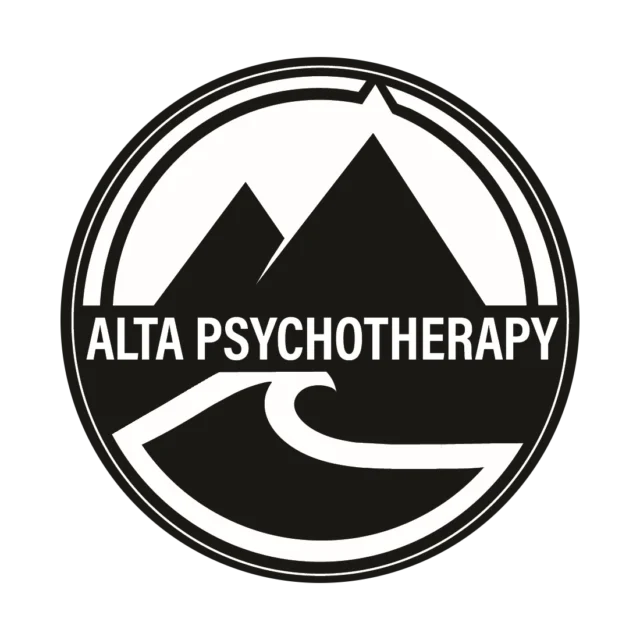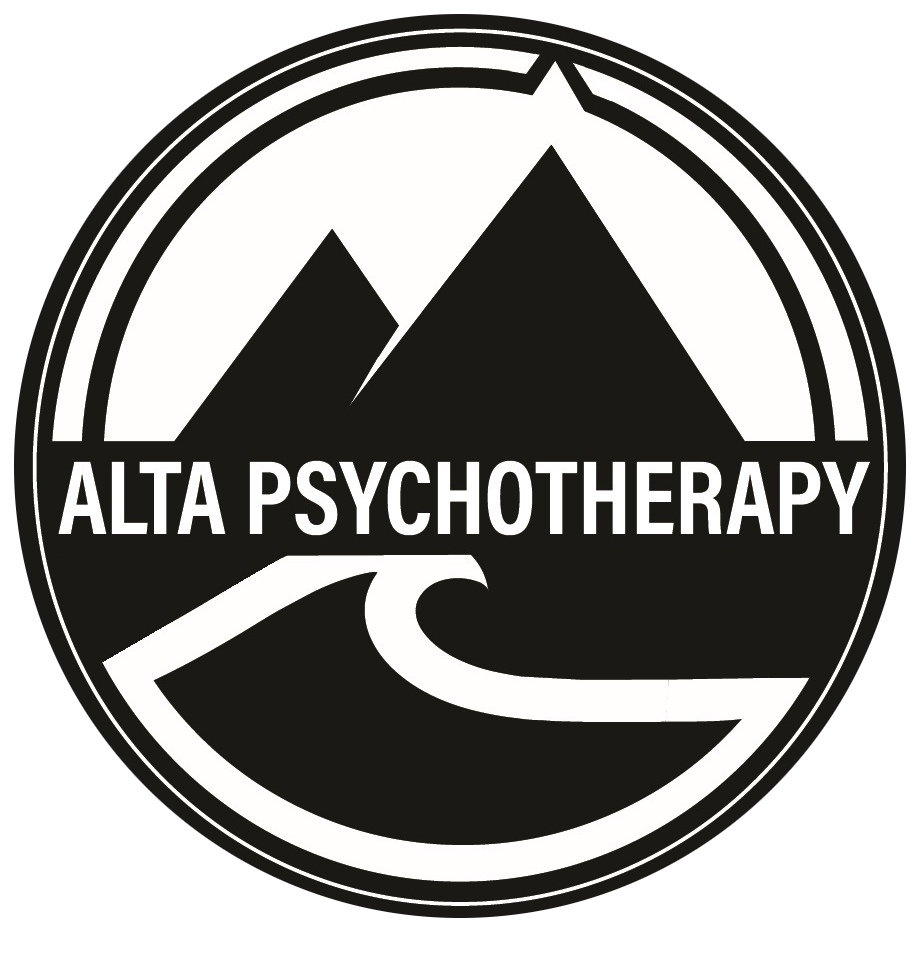General Psychotherapy:
EXCLUSIVELY FOR THE EXTREME &
ADVENTURE SPORTS COMMUNITY

AT ALTA THERAPY, WE UNDERSTAND THE UNIQUE CHALLENGES AND EXHILARATION THAT COME WITH PARTICIPATING IN EXTREME SPORTS.
THESE ACTIVITIES PUSH OUR PHYSICAL AND MENTAL BOUNDARIES.
WE’RE HERE TO SUPPORT YOU ON YOUR JOURNEY TO WELL-BEING, HEALING,AND PERSONAL GROWTH.

An Integrated Approach
At Alta Therapy, we are not just therapists; we are individuals who share the passion for alternative and extreme sports. Our therapists bring their personal experiences, professional expertise, and a deep understanding of the challenges you face. We are committed to creating a therapeutic alliance based on trust, empathy, and mutual understanding, ensuring that you feel heard and supported throughout your therapeutic journey.
☑️ Cognitive Behavioral Therapy (CBT)
A type of talk therapy, CBT examines a client’s thought patterns and how they influence behavior and choices. CBT helps clients pinpoint how some of their thoughts and behaviors may hold more historic weight and may not be helpful to them now. Over time, clients can use CBT to develop more helpful, accurate thinking patterns and coping behaviors that can reduce symptoms and improve quality of life.
☑️ Exposure and Response Therapy (ERT)
A type of cognitive-behavioral therapy that helps individuals gradually confront feared situations or objects in a controlled way to reduce anxiety. It also involves preventing the typical response (such as avoidance or compulsions), allowing the person to learn that their fear decreases over time without engaging in the usual coping mechanisms.
☑️ Narrative Exposure Therapy (NET)
Narrative therapy is a therapeutic approach that views individuals as the authors of their own stories, helping them reframe and reinterpret their experiences in a way that empowers them. It encourages people to separate their identity from problems, allowing them to gain new perspectives and reclaim control over their lives. Clients write a more positive life story that appropriately contextualizes the traumatic event and how it has influenced them.
☑️ Psychodynamic Trauma Therapy
Psychodynamic trauma therapy focuses on different factors that may affect or cause a client’s PTSD symptoms, such as experiences and coping mechanisms. This type of therapy focuses mostly on the client’s unconscious mind and how it influences behavior. Here, the therapist helps a client recognize and process painful, unconscious feelings so they can be released instead of being avoided.
What if I have reservations about getting diagnosed? Can this information be accessed by others?
Post Traumatic Stress Disorder (PTSD):
The aftermath of trauma—flashbacks, images, nightmares, avoidance of places and people reminiscent of the event—is where we often see members of the community stop engaging in their sport.
If you have withstood a traumatic event (injury, loss, harm) and are not hanging around the community as much, facing irritability and triggers; if you are experiencing jumpiness, are reactionary, and dissociative (tuning out and experiencing fogginess at the same time), you should consider reaching out for support.
If this persists for longer than six months, we typically see a more immediate need for professional support, as difficulties begin to compound with unhealthy coping mechanisms and can lead to more systemic issues.
While there are many merits to extreme and alternative sports—including eco-centricity, increased resilience, and mental flexibility—Alta Therapy also understands that some individuals have unresolved traumas prior to joining their extreme sport of choice. If vulnerabilities exacerbate while active in sport, that can directly impact judgment and lead to dire consequences around safety.
Many of us regard our activities as a form of therapy, which, psychologically, we know can create the feeling that we’re solving deeper issues, when in reality, the chemicals secreted in the brain during activity provide only momentary relief. The only way out is to process pain, and none of us can do it alone.
If you have experienced anything traumatic recently and are reading this, please reach out so we can help you through this time in your life.
General Worry and Anxiety (GAD):
Conquering fear and anxiety are fundamental aspects of participating in extreme sports. Through psychotherapy, we help you understand and manage these emotions, allowing you to approach your activities with greater confidence and control. By addressing the root causes of fear and anxiety, we can help you build a solid foundation of emotional strength, empowering you to push your limits and achieve your goals.
Your anxiety does not have to pertain to sports for you to receive support. This is a general psychotherapy program.
Normative Grief/ Complicated Grief:
Grief in the extreme sports community presents unique challenges that can significantly impact athletic performance. When we lose someone we love, emotional weight can manifest in heightened risk awareness, disrupted focus, and complex feelings about the sport we love. The close-knit nature of our community means that this grief is often shared collectively, affecting not just individual performance but team dynamics and training environments.
Through our specialized support, we help athletes navigate the complex intersection of grief and performance, developing healthy ways to honor loss while maintaining their connection to their sport. We understand that processing grief in extreme sports requires a unique approach that acknowledges both the emotional impact and the need to maintain focus and confidence in high-risk environments.
-
Identity Disruption
Losing a loved one in extreme sports can deeply alter an athlete’s sense of self, as their identity is often tied to both the sport and their connection with the person they lost. The athlete may struggle to redefine who they are without that person. -
Marked Sense of Disbelief
The suddenness of loss, especially in high-risk sports, can leave athletes in disbelief. It’s difficult to reconcile the death of someone they cared about, leading to feelings of confusion and a distorted sense of reality. -
Avoidance
Grief may cause the athlete to avoid their sport or certain social settings, unable to face the pain of competing without their loved one or triggering painful memories tied to the sport. -
Persistent Emotional Pain
The loss can trigger overwhelming emotional turmoil—sadness, anger, or guilt—that may interfere with both the athlete’s personal life and their performance in the sport. -
Difficulty Integrating Socially
After a loss, the athlete may feel isolated within their sports community. They might struggle to connect with peers who haven’t shared the same grief, feeling like an outsider. -
Emotional Numbness
To cope with the pain, the athlete might experience emotional numbness, detaching from both the sport and personal relationships, making it difficult to feel engaged in life or competition. -
Intense Loneliness and Detachment
Grief can create intense loneliness, especially when others don’t fully understand the depth of the athlete’s pain. This sense of detachment can make them feel emotionally disconnected from their community. -
Feeling that Life is Meaningless
Losing someone in such a high-stakes, adrenaline-driven environment can prompt athletes to question the purpose of their sport and life itself, making it hard to find meaning or direction after the loss.
Obsessive-Compulsive Disorder (OCD):
The precision and control required in extreme sports can amplify obsessive-compulsive tendencies in those with this diagnosis. Using Exposure and Response Therapy, the gold standard for OCD treatment, we carefully construct anxiety-triggering situations while teaching clients how to resist compulsive responses, allowing them to build confidence in managing OCD symptoms in recreational, training, and competition environments.
We can help you understand how OCD intersects with your athletic pursuits and develop strategies to maintain peak performance without letting compulsive behaviors or intrusive thoughts take control.
The perfectionism often associated with OCD can be both a strength and a limitation in extreme sports. We help clients harness the positive aspects of attention to detail, while preventing compulsive checking and intrusive thoughts from interfering with their performance. This program supports athletes whether OCD manifests in sports-specific ways or impacts other areas of life, recognizing that mental health in one domain affects overall wellbeing.
WE ALSO SUPPORT INDIVIDUALS WITH:
Panic Disorder
Disordered Eating
Clinical Depression
Drug and/or Alcohol Misuse
Attention Deficit Hyperactive Disorder
If you’re interested, we would love to hear from you.
